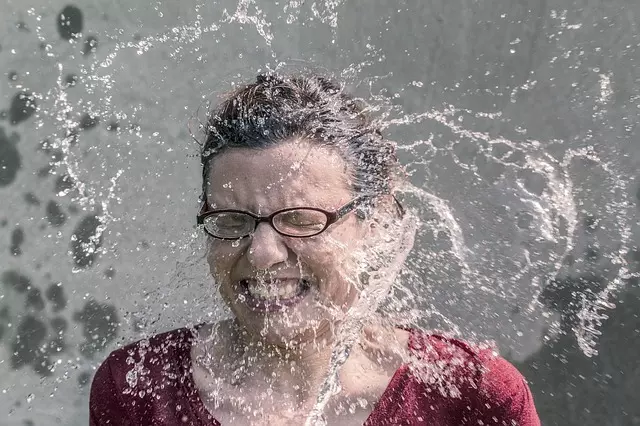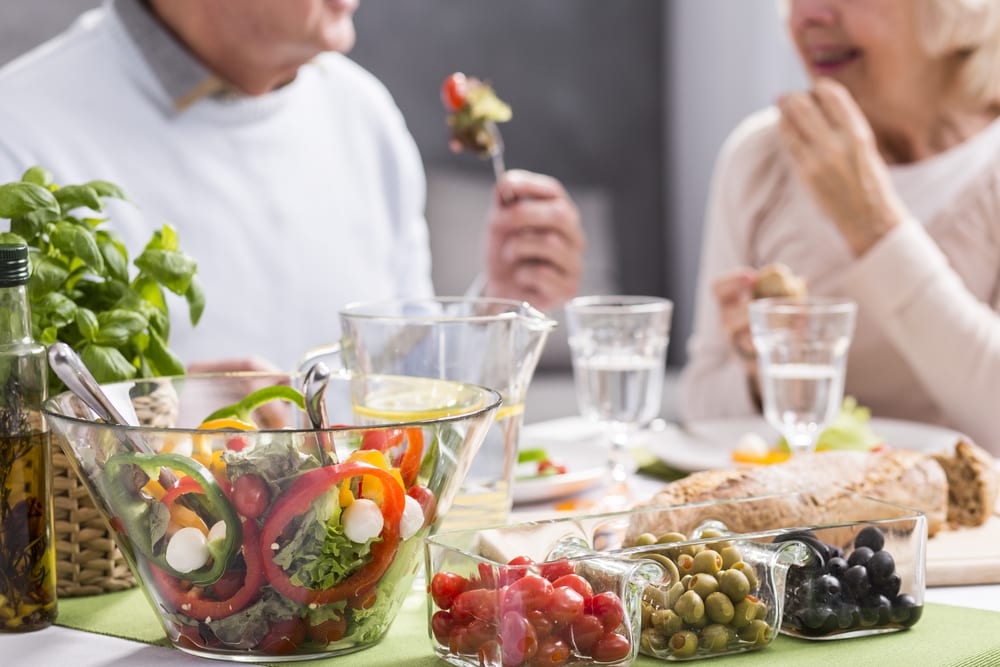In summer, the heat wave is often a cause for concern. Although they are not the only ones concerned, the elderly are particularly vulnerable. SilverEco.org offers tips to better support heat episodes.
Seniors are particularly vulnerable to heat waves because their bodies are less able to regulate the internal temperature. Heat waves can lead to serious and even fatal health problems in the elderly. It is therefore essential to take measures to protect them during periods of extreme heat.
Older people are more sensitive to heat due to several factors. Their ability to sweat and regulate body temperature decreases with age. In addition, they may have pre-existing health problems such as cardiovascular disease, respiratory problems or mental health problems, which can be exacerbated by heat.
Facing the heat wave : 7 tips from SilverEco
Drink water regularly without thirst

In a heat wave, the first recommendation is to hydrate well : drink water regularly and frequently, without waiting to be thirsty. Periods of high heat present an increased risk of dehydration. It is advisable to keep a water bottle handy and set reminders to think about drinking. In addition, the consumption of water-rich foods contributes to water intake.
Dry mouth, decreased urine production, fatigue, dizziness or headaches are signs of possible dehydration. Sweet drinks should be avoided, as well as coffee and tea, which have a diuretic action.
Cool and wet your body several times a day
Cooling and wetting your body several times a day are important tips for seniors during heat waves. Indeed, the more your body is refreshed, the more your body temperature will regulate and overheating will be avoided.
The goal is to take cool showers or baths several times a day to lower body temperature. For ecological reasons, it is possible to use a wet towel or wipes. Many ranges of water mist are available in large areas and/or pharmacies.
Eat enough and do not drink alcohol
Eating in sufficient quantities and avoiding drinking alcohol are tips to apply so as not to have a bad heat wave. The goal is to meet nutritional needs to avoid dehydration. During periods of intense heat, it is essential to maintain an adequate nutritional intake to support health and energy. A balanced and varied diet provides the nutrients needed to maintain the proper functioning of the body. As for alcohol, its consumption during the heat wave will have a diuretic effect and will accelerate dehydration.

It is also important to promote the consumption of water-rich foods, such as fruits (watermelon, melon, grapes, peach, etc.), to eat properly, by favouring raw vegetables, salads, light meals. Therefore, cold meals are also recommended so as not to increase the body temperature. It is also advisable to make several small snacks rather than large meals.
Attention : loss of appetite is one of the signs of dehydration.
Avoid going out during the hottest hours and keep accommodation cool
Going out during the hottest hours is strongly discouraged during a period of high heat. Generally, the highest temperatures are between 11 am and 4 pm. To stay at home during these slots, the activities of the day can be planned in advance but it is also possible to call on your loved ones to perform certain tasks.
In addition, it is recommended to keep your home at the expense. A cooled home prevents exhaustion or dehydration. Some methods are available to prepare for the heat wave :
- Good thermal insulation of ceilings, walls, floor-to-ceiling windows will make it easier to cope with the heat wave
- Equip windows with exterior shutters (roller shutters or conventional shutters)
- Use battery-operated fans and mains-connected fans, or air conditioning
- Have ice breads or bags of ice
Tips
To refresh your interior, there is a technique that requires a fan and frozen water bottles. Simply place them in front of your appliance so that the freshness of your bottles spreads throughout the room.
During the day, it is important to lower the blinds to avoid exposure to the sun, after sunset, raise the blinds to facilitate the passage of air. Moisten the curtains or soft wet towels in front of the windows or a fan cool the rooms.
It should be noted that home automation solutions can make it possible to quickly and easily control various equipment (roller shutters, air conditioning, humidifier, etc.) and program scenarios (closing roller shutters during the day and opening them in the evening, etc.).
Be sure to keep in touch with loved ones and, when necessary, ask for help
It is essential for seniors to think about sharing their news with their loved ones on a regular basis and to not hesitate to ask for help when necessary during heat waves. In addition, relatives must do the same by asking for news regularly to ensure the well-being of the senior.
With the vacations of their loved ones, isolated elderly people are often the most vulnerable in case of high temperatures.
- If you know elderly, disabled or frail people who are isolated, encourage them to register on the list provided by each town hall to receive help from volunteers, and, during a heat wave, check in regularly.
How to take action to avoid being alone in a heat wave :
- Establish a list of loved ones and others who can be counted on in the event of a heat wave (for all : establish a list of people you could potentially help)
- To be enumerated with the social services of his commune. In the event of a heat wave, volunteers will regularly visit the homes of those on the list
It should also be noted that teleassistance solutions (conventional teleassistance or mobile teleassistance) are used to alert a person or a teleassistance centre in case of distress or discomfort due to the heat wave.
If necessary, seek assistance from your treating physician
It is recommended that seniors seek help from their treating physician during hot weather. The doctor can provide specific advice tailored to your medical condition and help you take the necessary precautions to cope with the heat. Your doctor will be able to refer you during periods of high heat on the things to do or not to do, regulate your medications or offer you specific advice depending on your health.
Signs of dehydration in the elderly
There are several signs of dehydration in the elderly :
- Change in usual behaviour, great weakness, great fatigue, unusual difficulty moving
- Headaches, dizziness, dizziness, disturbances of consciousness, even convulsions
- Nausea, vomiting, diarrhea, thirst
- Muscle cramps
- Elevated body temperature (greater than 38.5°C)
- Unusual nocturnal agitation
Published by the Editorial Staff on
